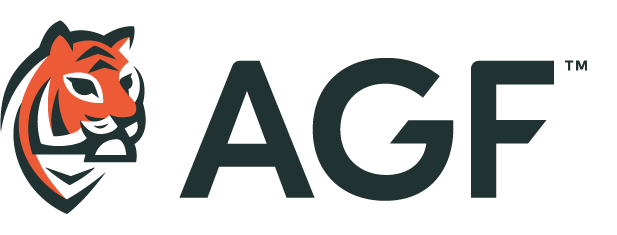by Greg Valliere, AGF Management Ltd.

Insights and Market Perspectives
Author: 8
October 7, 2021
Kick The Can — Why Default Isn’t an Option
October 7, 2021
EVERYONE BLINKED YESTERDAY, as it became clear — once again — that the politicians, the Federal Reserve and the country’s business leaders will never allow the debt ceiling nonsense to threaten a U.S. default.
THERE WILL BE MORE CONFUSION and anxiety on this issue, heading into an early December deadline; in a vote today, Congress will simply kick the can for another two months. But a genuine default isn’t a risk — and it never was.
IT WAS BECOMING CLEAR by yesterday morning that Mitch McConnell had gotten the most he could out of this issue, and was starting to look like a big part of the problem. Once the Democrats began warning that checks for Social Security and the military might not arrive, the dynamics of this debate changed.
SOME DEMOCRATS ECHOED SEN. ELIZABETH WARREN, who declared that “McConnell caved. And now we’re going to spend our time doing child care, health care and fighting climate change.”
BUT MOST POLITICIANS toned down the rhetoric, happy for two months of breathing room to reach a more permanent solution. A notable exception was Donald Trump, who fumed: “Looks like Mitch McConnell is folding to the Democrats again. He’s got all of the cards with the debt ceiling, it’s time to play the hand. Don’t let them destroy our Country!”
NOW THE FOCUS WILL SHIFT IN TWO IMPORTANT REGARDS:
First, as a new deadline approaches just before the holidays, there will be more speculation about novel approaches — changing filibuster rules, but that option was rejected yesterday by Sen. Joe Manchin. And the novel idea of creating a $1 trillion coin to pay for debt payments lost its luster as Janet Yellen rejected the idea.
Our guess is that a more permanent debt ceiling solution will require using the budget reconciliation process — which Democrats hate because they
say it’s cumbersome and time-consuming. Well, now they will have some time.
But this debt ceiling extension probably will require still another kick the can deal just as lawmakers leave town for the holidays. They also have to keep the government running; that expires on Dec. 3. If the can is kicked into early 2022, this will become a dominant issue in next year’s elections — and we say “good.” Maybe the voters can arbitrate this better than the politicians.
Second, the Democrats will now have more time to pursue an infrastructure bill, amid growing signs that agreement on a dollar amount for the social spending measure seems to be nearing. Something a little above or a little below $2 trillion seems likely; we’ll take the under.
There are dozens of huge infrastructure issues still to be resolved — the shape of tax hikes, how to credibly pay for the bill, and whether to make new spending last for ten years or, more likely, two or three years. This huge package also could drag into 2022.
BOTTOM LINE: It’s always a good thing to avoid a crisis, even if it’s for just two months. Another extension is probable, kicking everything into the 2022 election year. The debt ceiling is still a maddening issue, but it’s not going to lead to default; that was always unthinkable — when faced with that threat, everyone blinks.
The views expressed in this blog are provided as a general source of information based on information available as of the date of publication and should not be considered as personal investment advice or an offer or solicitation to buy and/or sell securities. Speculation or stated believes about future events, such as market or economic conditions, company or security performance, or other projections represent the beliefs of the author and do not necessarily represent the view of AGF, its subsidiaries or any of its affiliated companies, funds or investment strategies. Every effort has been made to ensure accuracy in these commentaries at the time of publication; however, accuracy cannot be guaranteed. Market conditions may change and AGF accepts no responsibility for individual investment decisions arising from the use of or reliance on the information contained herein. Any financial projections are based on the opinions of the author and should not be considered as a forecast. The forward looking statements and opinions may be affected by changing economic circumstances and are subject to a number of uncertainties that may cause actual results to differ materially from those contemplated in the forward looking statements. The information contained in this commentary is designed to provide you with general information related to the political and economic environment in the United States. It is not intended to be comprehensive investment advice applicable to the circumstances of the individual.
AGF Investments is a group of wholly owned subsidiaries of AGF Management Limited, a Canadian reporting issuer. The subsidiaries included in AGF Investments are AGF Investments Inc. (AGFI), AGF Investments America Inc. (AGFA), AGF Investments LLC (AGFUS) and AGF International Advisors Company Limited (AGFIA). AGFA and AGFUS are registered advisors in the U.S. AGFI is a registered as a portfolio manager across Canadian securities commissions. AGFIA is regulated by the Central Bank of Ireland and registered with the Australian Securities & Investments Commission. The subsidiaries that form AGF Investments manage a variety of mandates comprised of equity, fixed income and balanced assets.
About AGF Management Limited
Founded in 1957, AGF Management Limited (AGF) is an independent and globally diverse asset management firm. AGF brings a disciplined approach to delivering excellence in investment management through its fundamental, quantitative, alternative and high-net-worth businesses focused on providing an exceptional client experience. AGF’s suite of investment solutions extends globally to a wide range of clients, from financial advisors and individual investors to institutional investors including pension plans, corporate plans, sovereign wealth funds and endowments and foundations.
For further information, please visit AGF.com.
©2021 AGF Management Limited. All rights reserved.
This post was first published at the AGF Perspectives Blog.














